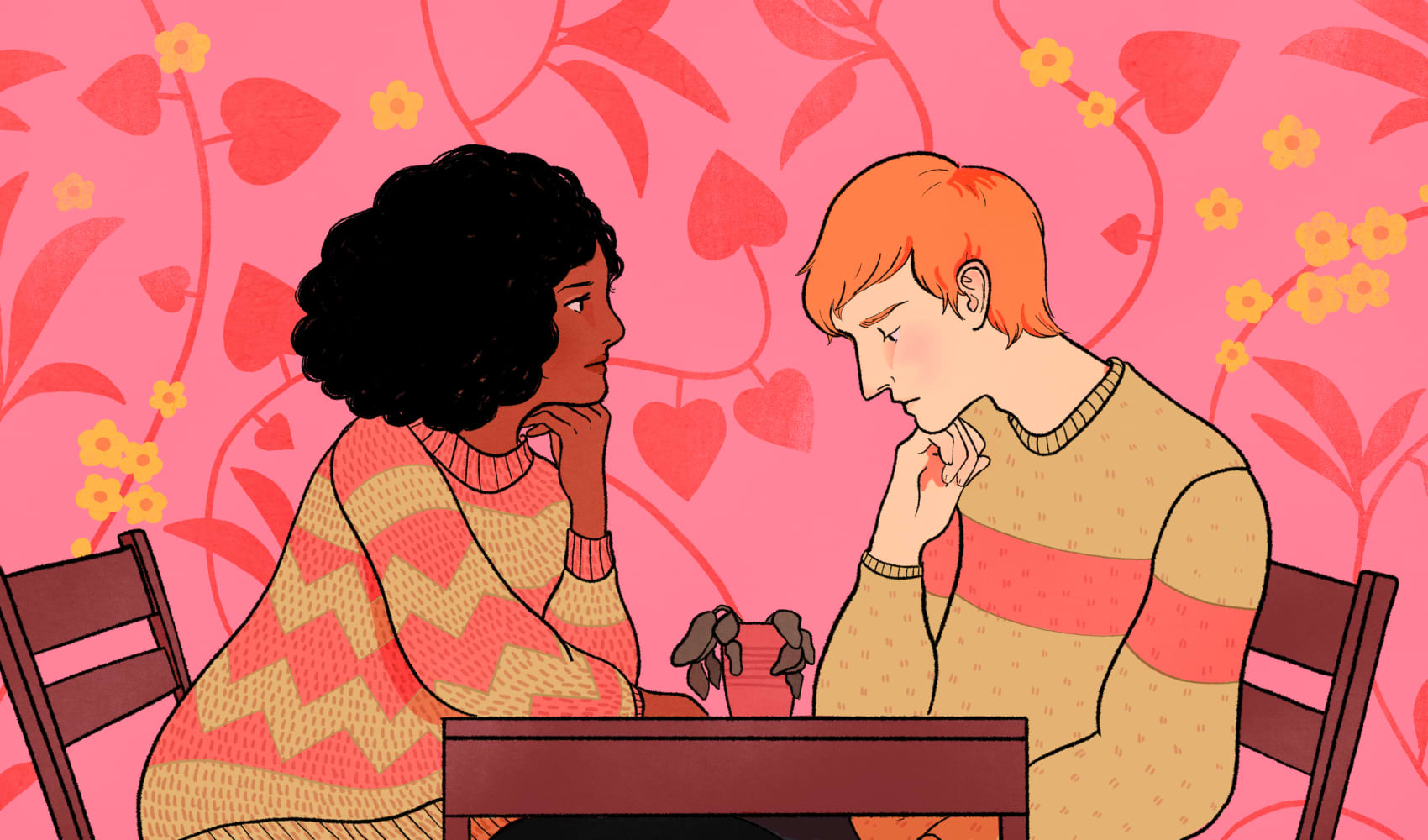Annoying Relationship Habits: 5 Ways to Ruin Your Love
Relationship Roadblocks: 5 Annoying Habits That Can Ruin Your Love
Introduction: The Little Things That Kill Love
Even the strongest and happiest relationships can falter when seemingly small, frustrating habits are left unaddressed. They slowly pile up until, suddenly, their weight seems unbearable. Think of it like a leaky faucet: one drip isn't a big deal, but over time, it can cause serious water damage. Relationships are the same; those tiny, irritating habits can erode the foundation of your bond.
When relationships end this way, exes often ruminate over the "straw that broke the camel's back." As a psychotherapist who has worked with over 100 couples, I've seen firsthand how some unchecked behaviors can drive a wedge between partners. It's rarely a single, catastrophic event; it's usually the accumulation of these small, annoying habits that ultimately leads to resentment, frustration, and the demise of the relationship.
So, what are these relationship-killers? Let's dive into the five most common and annoying habits I've witnessed destroy relationships.
1. The Mind-Reading Myth: Expecting Telepathy
The Illusion of Transparency
Instead of expressing their needs clearly, many people expect their partners to know exactly what they need, when they need it. But this is an easy way to set yourself up for disappointment. It's like expecting someone to know your favorite ice cream flavor without ever telling them. How can they possibly guess?
Psychologists refer to it as the "illusion of transparency," a cognitive bias where people assume that their emotions and desires are obvious to others. The truth is, your partner isn't a mind reader. You need to communicate your needs and desires directly, even if it feels uncomfortable or vulnerable. If you’re hoping for flowers, don’t drop vague hints – just say, “I’d really love some flowers this week.”
Consequences of Unspoken Needs
When you consistently expect your partner to read your mind, you create a breeding ground for resentment. Your partner may feel like they’re constantly failing to meet your expectations, even when they're trying their best. This can lead to feelings of inadequacy, frustration, and ultimately, a desire to withdraw from the relationship. Avoid the guessing game and start speaking up!
2. The Scorekeeper's Game: Keeping Tabs on Everything
The Problem with the Spreadsheet Approach
Are you constantly keeping track of who does more chores, who initiates more dates, or who apologizes first after an argument? This is a common, but incredibly toxic, habit. It turns your relationship into a competition, where each partner is focused on maximizing their own perceived value and minimizing their contributions. Relationships aren't about fairness; they're about partnership.
Shifting the Focus from Love to Numbers
When you're constantly keeping score, you lose sight of the bigger picture: the love, connection, and shared experiences that make your relationship special. You start focusing on what you're *not* getting, rather than appreciating what you *do* have. This can lead to a cycle of negativity and resentment, ultimately undermining the foundation of your relationship. Throw away the spreadsheet and start focusing on appreciating your partner's efforts, regardless of how they measure up on your imaginary scoreboard.
3. The Complaint Carousel: Constant Criticism
The Downward Spiral of Negativity
Everyone has pet peeves, but constantly nitpicking and complaining about your partner's flaws will eventually erode their self-esteem and damage the relationship. Constructive criticism, delivered with kindness and empathy, can be helpful. However, constant, unwarranted complaints just create a negative atmosphere and make your partner feel like they can never do anything right. Are you focusing more on what they do wrong than what they do right?
Finding Gratitude and Appreciation
Instead of focusing on the things that annoy you, try to cultivate an attitude of gratitude and appreciation. Make a conscious effort to notice and acknowledge the things your partner does well. Express your appreciation verbally and show your gratitude through your actions. This will not only make your partner feel loved and valued, but it will also shift the focus of your relationship from negativity to positivity.
4. The Silent Treatment: Withholding Affection and Communication
The Emotional Black Hole
The silent treatment, also known as stonewalling, is a form of emotional abuse where one partner withholds affection, communication, and responsiveness as a form of punishment or control. It's like building an emotional wall between you and your partner, shutting them out and leaving them feeling isolated and rejected. It’s a passive-aggressive tactic that avoids addressing the real issue and inflicts pain on the recipient.
Alternatives to Shutting Down
Instead of resorting to the silent treatment, learn to communicate your feelings in a healthy and constructive way. If you need time to cool down after an argument, communicate that to your partner. Say something like, "I'm feeling overwhelmed right now. Can we take a break and come back to this later?" This shows that you're not trying to punish them, but that you need some space to process your emotions. Remember, open communication is the key to resolving conflict and building a stronger relationship.
5. The Social Media Obsession: Prioritizing Screens Over Your Partner
The Digital Divide
In today's digital age, it's easy to get caught up in social media and spend hours scrolling through your phone. But when you prioritize screens over your partner, you're sending a message that they're not as important to you. How many times have you seen a couple at dinner, both glued to their phones, barely acknowledging each other's presence? It’s a common sight, and a heartbreaking one.
Creating Tech-Free Zones
Make a conscious effort to disconnect from your devices and connect with your partner. Designate certain times or places as "tech-free zones," such as during meals, in the bedroom, or during date nights. Put your phones away, turn off the TV, and focus on spending quality time together. Engage in meaningful conversations, listen to each other, and show each other your undivided attention. These small moments of connection can make a big difference in the health of your relationship.
6. The Passive-Aggressive Dance: Indirect Communication
Instead of directly expressing your feelings or needs, are you resorting to sarcasm, backhanded compliments, or subtle jabs? This is passive-aggressive behavior, and it's a recipe for disaster in a relationship. It creates confusion, resentment, and a lack of trust. It’s like trying to build a house with faulty materials – eventually, it will crumble.
Why Direct Communication is Crucial
The foundation of any healthy relationship is built on open and honest communication. Directly expressing your feelings and needs eliminates misunderstandings and avoids the buildup of unspoken resentments. Instead of saying something like, "Oh, that's a nice shirt, I guess," try saying, "I really like that shirt on you." Authenticity and clarity will do wonders for your connection.
7. The "I Told You So" Trap: Dwelling on Past Mistakes
Everyone makes mistakes. Holding your partner's past mistakes against them and constantly bringing them up will only breed resentment and bitterness. It's like reopening an old wound that's trying to heal. Forgiveness is essential for a healthy relationship.
Practicing Forgiveness and Moving Forward
Instead of dwelling on the past, focus on the present and the future. Learn to forgive your partner for their mistakes, and allow them to learn and grow from them. If the mistake is truly unforgivable, perhaps the relationship isn't sustainable, but if there is a willingness to move forward, let go of the past and focus on building a stronger future together.
8. The Blame Game: Avoiding Responsibility
When problems arise, do you immediately point the finger at your partner, or do you take responsibility for your own actions? The blame game is a destructive cycle that prevents you from addressing the root causes of your problems. It's like trying to fix a car engine by blaming the driver – it won't solve the underlying mechanical issue.
Taking Ownership of Your Actions
Instead of blaming your partner, take ownership of your own actions and contributions to the problem. Acknowledge your mistakes, apologize for your shortcomings, and work together to find solutions. This will foster a sense of teamwork and cooperation, strengthening your bond and paving the way for healthier communication.
9. The Lack of Appreciation: Taking Your Partner for Granted
Do you regularly express your gratitude for your partner, or have you started taking them for granted? Failing to acknowledge and appreciate your partner's efforts, big or small, can make them feel unloved and undervalued. Appreciation is like fertilizer for a relationship – it helps it grow and thrive.
Expressing Gratitude Regularly
Make a conscious effort to express your gratitude to your partner every day. Thank them for the little things they do, acknowledge their efforts, and let them know how much you appreciate them. A simple "thank you" can go a long way in making your partner feel loved, valued, and appreciated.
10. The Avoidance of Conflict: Sweeping Issues Under the Rug
While no one enjoys conflict, avoiding it altogether can be just as damaging. When you sweep issues under the rug, they don't disappear; they fester and grow, eventually erupting in a much larger, more destructive way. It's like ignoring a plumbing leak – it will eventually lead to significant water damage.
Healthy Conflict Resolution
Learn to approach conflict as an opportunity for growth and understanding. Address issues directly, but respectfully, and strive to find solutions that work for both of you. Develop healthy communication skills, such as active listening and empathy, to navigate disagreements constructively. Conflict, when handled properly, can actually strengthen your relationship.
11. The Neglect of Intimacy: Physical and Emotional Distance
Intimacy, both physical and emotional, is essential for a strong and fulfilling relationship. Neglecting intimacy can lead to feelings of disconnection, loneliness, and resentment. It’s like depriving a plant of water – it will slowly wither and die.
Prioritizing Intimacy in Your Relationship
Make a conscious effort to prioritize intimacy in your relationship. Schedule regular date nights, engage in physical affection, and make time for meaningful conversations. Reconnect with your partner on an emotional level by sharing your thoughts, feelings, and vulnerabilities. Nurturing intimacy will keep the spark alive and strengthen your bond.
12. The Loss of Individuality: Becoming Too Dependent
While it's important to be a supportive partner, it's equally important to maintain your individuality and pursue your own interests and passions. Becoming too dependent on your partner can stifle your personal growth and lead to feelings of resentment and boredom. A healthy relationship allows both partners to thrive as individuals.
Maintaining Your Own Identity
Continue to pursue your own hobbies, interests, and friendships. Maintain a sense of independence and individuality. This will not only make you a more interesting and well-rounded person, but it will also prevent your relationship from becoming suffocating or codependent.
13. The Lack of Fun: Forgetting to Enjoy Each Other's Company
Relationships should be fun and enjoyable! When you stop having fun together, your relationship can become stale and monotonous. It’s like eating the same meal every day – eventually, you’ll lose your appetite.
Injecting Fun and Playfulness Back into Your Relationship
Make a conscious effort to inject fun and playfulness back into your relationship. Try new activities together, engage in playful banter, and laugh together often. Remember the things that made you fall in love in the first place, and try to recapture that spark of excitement and joy.
14. The Comparison Game: Measuring Your Relationship Against Others
Comparing your relationship to others, especially on social media, is a surefire way to feel inadequate and dissatisfied. Every relationship is unique, and comparing yours to others is like comparing apples to oranges. It’s an exercise in futility that only leads to unhappiness.
Focusing on Your Own Journey
Instead of comparing your relationship to others, focus on your own journey and celebrate your own unique strengths and accomplishments. Remember that social media often presents a curated and idealized version of reality, and it's not a reliable measure of relationship success. Focus on building a relationship that is authentic, fulfilling, and meaningful to you and your partner.
15. The Resistance to Change: Sticking to Old Patterns
Relationships evolve and change over time, and it's important to be adaptable and willing to adjust your expectations and behaviors accordingly. Resisting change and clinging to old patterns can lead to stagnation and resentment. Flexibility is key to a long-lasting and fulfilling relationship.
Embracing Growth and Evolution
Be open to new ideas, new experiences, and new ways of relating to your partner. Embrace growth and evolution, both as individuals and as a couple. This will allow your relationship to adapt to the changing circumstances of life and continue to thrive over time.
Conclusion: Building a Stronger, More Loving Bond
These five annoying habits, along with the others we discussed, might seem small, but they can have a significant impact on the health and longevity of your relationship. By recognizing these pitfalls and actively working to avoid them, you can build a stronger, more loving, and more fulfilling bond with your partner. Remember, communication, appreciation, and a willingness to adapt are the cornerstones of a lasting and happy relationship. So, ditch the mind-reading, throw away the scorecard, and start focusing on building a partnership based on love, respect, and understanding.
Frequently Asked Questions
-
What if my partner refuses to acknowledge these habits in themselves?
It's tough when a partner is resistant to self-reflection. Focus on communicating your own feelings and needs clearly, using "I" statements (e.g., "I feel frustrated when..."). If they remain unwilling to engage, consider seeking couples therapy to facilitate a more productive conversation.
-
How can I break the cycle of constant criticism in my relationship?
Start by consciously shifting your focus to the positive aspects of your partner and your relationship. Make a daily effort to express appreciation and offer compliments. When you do need to address a concern, do so gently and constructively, focusing on specific behaviors rather than general character flaws.
-
Is it ever okay to keep score in a relationship?
While some couples may find a system of shared responsibilities helpful, it's crucial to avoid turning it into a competitive "scorekeeping" game. Focus on fairness and mutual support, rather than meticulously tracking every contribution. If you find yourself feeling resentful, have an open conversation about workload and expectations.
-
How can we reconnect after a period of emotional distance or silent treatment?
Start by acknowledging the issue and expressing a desire to reconnect. Initiate small acts of kindness and affection, and create opportunities for quality time together. Focus on active listening and empathy, and be patient as you rebuild trust and communication.
-
What if social media is a constant source of conflict in our relationship?
Establish clear boundaries around social media use, especially when you're spending time together. Agree on specific times or places that are "tech-free zones," and prioritize face-to-face interaction. If one partner feels neglected or insecure due to social media, have an open and honest conversation about your concerns.


